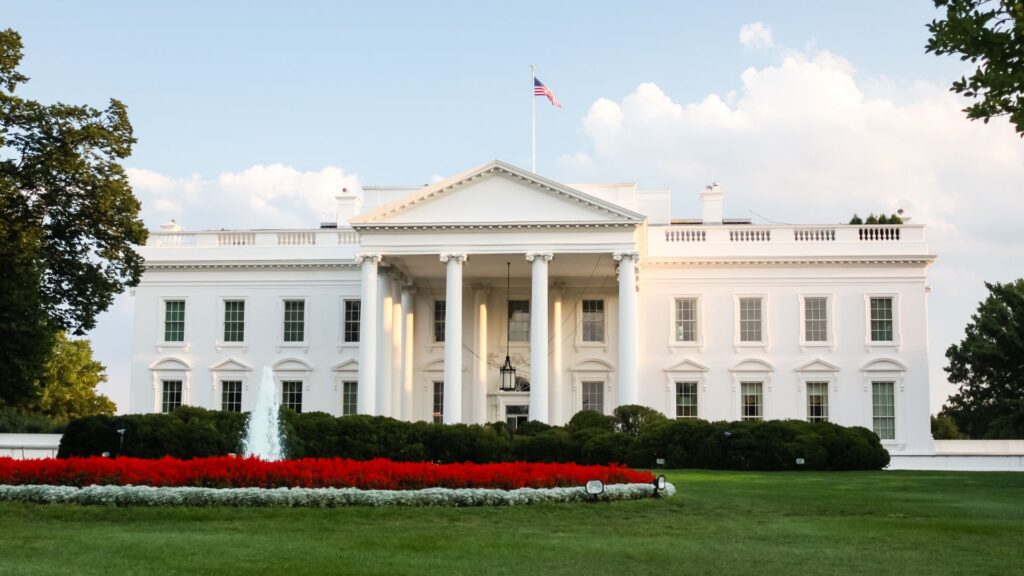Is the US Presidency Actually a Powerful Dictatorship?
The presidency of the United States has a surprisingly undemocratic selection process. In my previous article on American democracy, I pointed out that the president is not elected by popular vote, but by the electoral college and how, over time, the presidential election process has become corrupt.
America’s founding fathers feared the evolution of the presidency into an imperial office. In fact, that fear was the driving force behind the separation of powers into three distinct branches of government: the executive, the legislative, and the judiciary.
We traditionally call this the “checks and balances” system. Each branch of government can challenge the actions of another branch. For example, the judiciary has the power to overturn unconstitutional laws drafted by the legislature or overrule acts contravening the law by the executive. This can happen both at the state and the federal levels.
In Washington, the president can veto legislation proposed by the Congress. At the same time, the Congress has the power to override presidential vetoes and confirm or reject presidential nominations. At first sight, the checks and balances system appears to be an effective way to maintain democracy. However, the system doesn’t always work out the way it was originally intended. In recent years, it has led to partisan division and logjam.
The Most Powerful Man in the World
Despite the fact that they are not exactly elected directly by the people, US presidents have the power to make critical decisions via executive orders. On August 24, 2002, President Joe Biden signed an executive order “to cancel $10,000 of student debt for low- to middle-income borrowers.” This cost of Biden’s plan is estimated to be $400 billion for US taxpayers.
Executive orders are sometimes called “instant laws.” They do not need Congressional approval. The Supreme Court has the power to overturn them if they are found unconstitutional. However, this is a high bar and presidents have been usurping the power of Congress.
During his time in the White House, Franklin D. Roosevelt issued a record number of 3,721 executive orders. Only five of them were overturned by the Supreme Court. More recently, Donald Trump made executive orders infamousby announcing big policy changes without Congressional approval.
Even more alarming are the president’s nuclear powers. As commander-in-chief of all the US armed forces, the president has exclusive access to the nuclear codes. With the push of a button, he can cause a nuclear holocaust. Should a single human being have the power to destroy the world?
As I have pointed out repeatedly in my past articles, the US has an aggressive foreign policy. It meddles in the affairs of other countries. This leads to tensions and even standoffs with other powers such as Iran, Russia and China. An American president could blunder into nuclear war in a crisis. In 1962, the Cuban Missile Crisis demonstrated this danger.
The Biden-led NATO supports Ukraine against Russia. This is part of a longstanding American policy. After the collapse of the Soviet Union in 1991, NATO has expanded east. The “deep state” has taken charge of American foreign policy. Presidents have to do the bidding of the military-industrial complex. In 1961, Dwight D. Eisenhower warned against this phenomenon in his parting presidential address. In the context of the Russia-Ukraine War, the US president’s nuclear powers have become dangerous.
A Rapidly Deteriorating System
A key reason why the office of the president has become all powerful is because the Congress has become dysfunctional. The incessant squabbling between the two political parties makes passing of laws extremely difficult. The parties themselves are increasingly divided. It took a historic 15 rounds of voting for Kevin McCarthy to be elected speaker of the House of Representatives.
Republican lawmakers are so divided right now that it will be difficult for them to push through any legislation despite their majority. Even if they do, Democrats have a wafer-thin majority in the Senate and can block them. The Democrats are divided themselves and are unlikely to push through significant bills in the Senate. This leaves the White House a clear field for executive orders.
In this way, the US presidential power and prestige are the envy of dictators. Presidents enjoy unprecedented autocracy and imperial power under the guise of democracy. The president appoints thousands of delegates, who often lack the qualifications necessary for the political positions they are assuming.
Presidents have not only been appointing shady judges but they have also been benefiting family members. Jared Kushner, Trump’s son-in-law, profited immensely from dealings with the Saudis. This might not have been illegal but was certainly immoral. Such is the power of the president that Trump and Kushner were never held to account.
Today, the presidency is too powerful and not accountable to the people. Reforms to the system are long overdue. Otherwise, troubles lie ahead. An unrestrained, all-powerful presidency is not sustainable long term.
https://www.fairobserver.com/american-news/is-the-us-presidency-actually-a-powerful-dictatorship/






Geen opmerkingen:
Een reactie posten